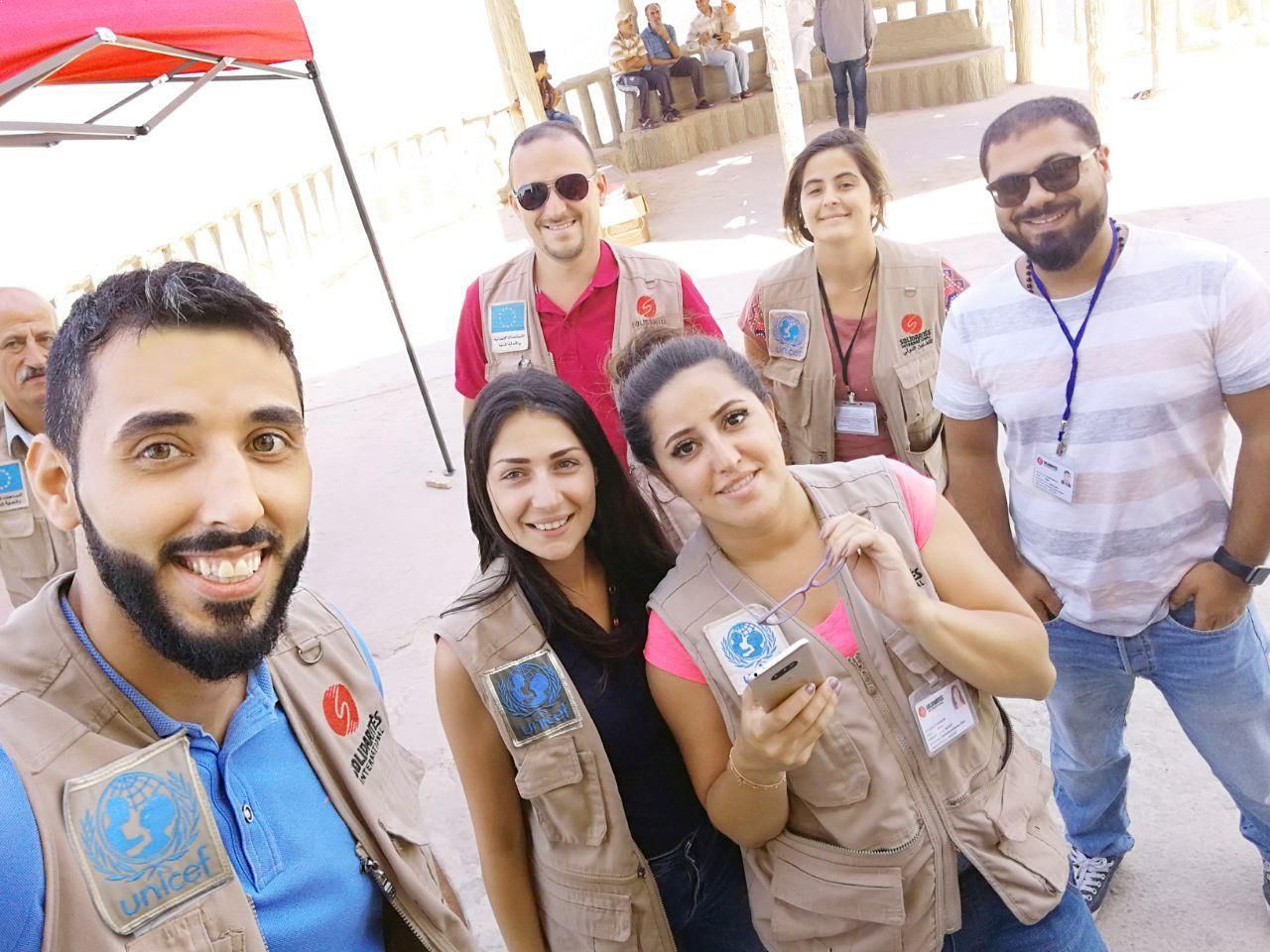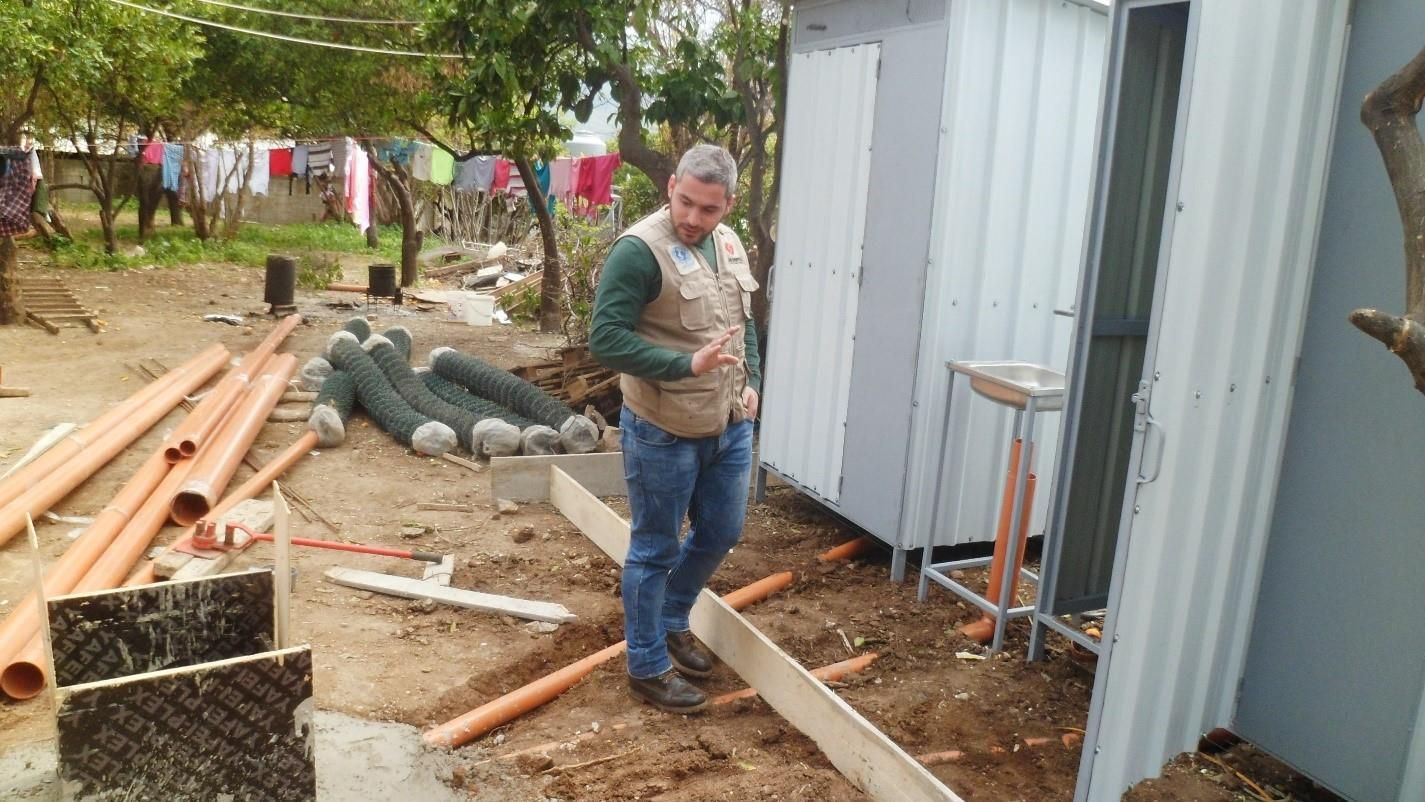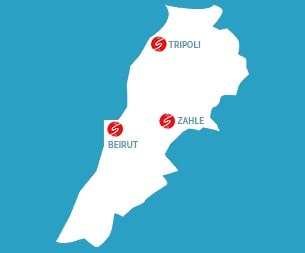Three humanitarian workers from LebRelief, a Lebanese non-profit engaged in the Syrian crisis response since 2013, joined SOLIDARITÉS INTERNATIONAL staff for six months to learn more about how to provide assistance to informal tented settlements in North Lebanon.
I was formal at first, but very soon friendships happened naturally, and now SOLIDARITÉS staff has become my family –Amar Khanji

SOLIDARITÉS INTERNATIONAL was among the first international NGOs to embrace this initiative. It is part of its worldwide strategy to promote self-governance through empowerment and capacity building of both refugee and host communities, also including national NGO partnerships, to ensure a qualitative and sustainable long-term intervention. The final aim is for LebRelief to replace SOLIDARITÉS INTERNATIONAL as the Water Sanitation and Hygiene implementing partner in the North.
National NGOs have an essential role to play in the humanitarian response because they will remain once the international NGOs have gone, providing a more sustainable form of assistance. I believe this is why capacity building of national organizations is part of SOLIDARITÉS INTERNATIONAL’s mandate – Leland Montell, Tripoli Field coordinator, North Lebanon.
LebRelief mostly works in urban contexts. Therefore, Amar, Mazen, and Ahmad had little idea about how to implement Water Sanitation and Hygiene activities in informal settlements. Our staff served as direct mentors to the hosted staff, guiding them step-by-step in all the details of the intervention in informal settlements. “It is beautiful that I am sharing my experience with others, that after the mentorship ended they will become able to carry on the activities all by themselves” – Abul Razzak Ayoubi, Community Hygiene Promotion officer & Rapid Needs Assessment focal point.
The comprehensive training program consisted of hygiene awareness in the community and water sanitation and hygiene.
Ahmad was trained to conducting technical assessments, generating bills of quantity, engaging contractors, project oversight and hand-over, paperwork processing and follow-up. In addition, he received training in activities such as water trucking and desludging, and the installation and maintenance of water infrastructure.
“It was a bit hard the first month, as everything was new to me, but with daily exposure to the activities I adapted to the situation. Now I have all the knowledge to continue on my own” –Ahmad Kabbout

Mazen and Amar were embedded in the Community Hygiene Promotion department, spending their months in daily contact with beneficiaries living in informal settlements and collective shelters to learn about creating and supporting Water Sanitation and Hygiene committees. Being on the ground on a daily basis gave them a new perspective on the Syrian crisis. Amar explained “ My first visit to an informal settlement was during winter time, and it was a lot different from anything I had seen before.” Her impression was shared by Mazen “I very surprised by some of what I saw. The families live in tents, they share latrines, they need water trucking…”
They are completely dependent! During storms, some houses crumbled, and we had to conduct emergency interventions – Mazen
Leland Montell (Tripoli base Field Coordinator) explained that this mentorship program was vital to ensure that LebRelief would navigate smoothly into the informal settlement context and “hit the ground running” in its area of intervention: “The mentoring program has provided three experts in the management of Informal Settlements to LebRelief to manage our hand-over to them. We also made sure that the LebRelief staff worked in the sites meant to be handed over during the mentorship period, so they would be familiar with the communities, the needs, and the work required.”
The mentoring program a real transfer of expertise
As a result of the mentorship program, LebRelief gained an expertise for three staff members, providing many new skills, a targeted experience, increased empathy toward the plight of the beneficiaries, but also with enduring friendships and professional relationships. This UNICEF-led initiative aims to emphasize the role of local NGOs in the Syrian refugee crisis in Lebanon. The success of this program demonstrated the need to replicate this experience in other departments, sectors, and NGOs. SOLIDARITÉS INTERNATIONAL will continue to be among the first to open its doors.
Support our teams
Lebanon
Context and action- 5.6 million inhabitants
- 112th out of 191 countries on the Human Development Index
- 122.148 people helped

